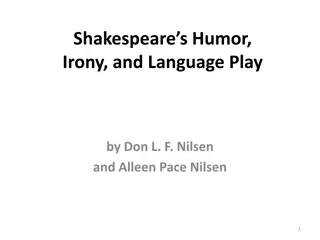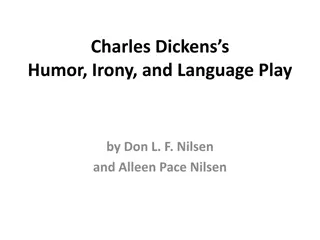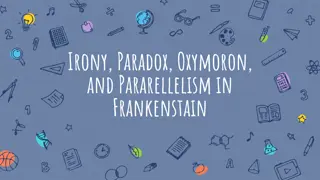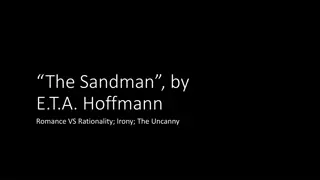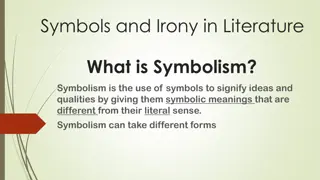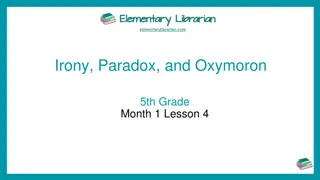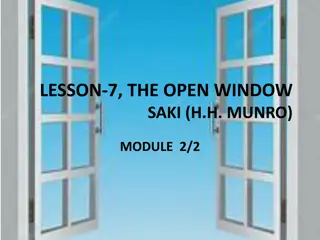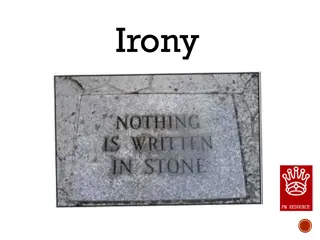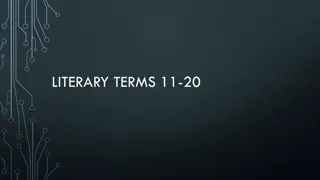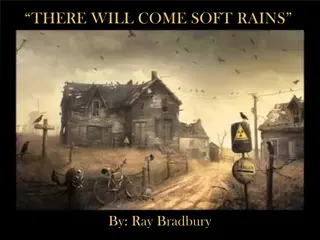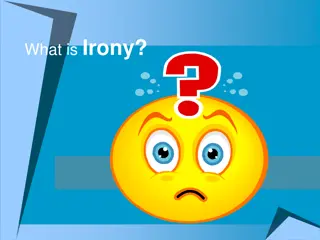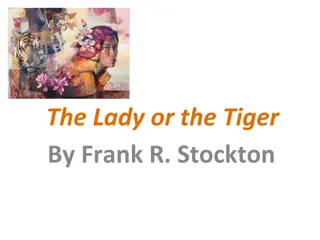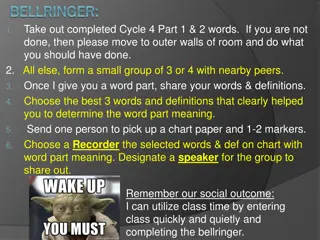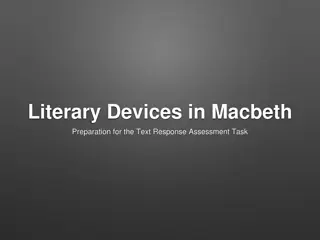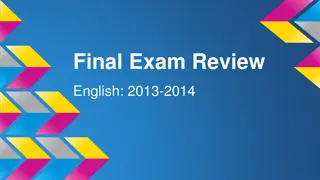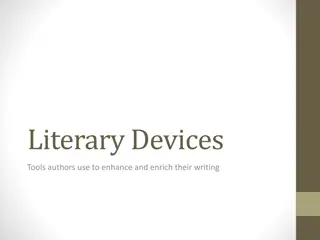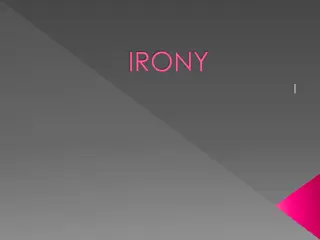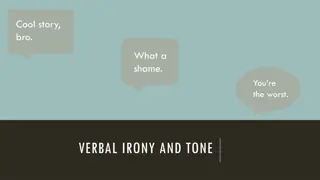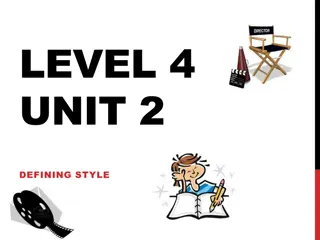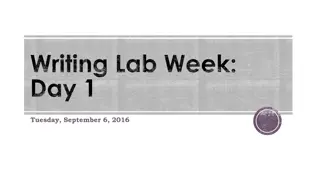Understanding Irony: Types, Purpose, and Examples
Irony is about expectations and contrast between reality and what is being said. It can add interest, depth, suspense, and humor to texts. The three types of irony are verbal, dramatic, and situational, each serving a unique purpose to engage the audience. Examples from popular stories like Beauty and the Beast and The Lion King illustrate how dramatic irony creates suspense and captivates the audience's interest. Situational irony occurs when a situation turns out to be the opposite of what is expected.
Download Presentation

Please find below an Image/Link to download the presentation.
The content on the website is provided AS IS for your information and personal use only. It may not be sold, licensed, or shared on other websites without obtaining consent from the author. Download presentation by click this link. If you encounter any issues during the download, it is possible that the publisher has removed the file from their server.
E N D
Presentation Transcript
What is Irony? Irony is about EXPECTATIONS! It s ironic if it s the opposite of what is expected. 3 kinds of irony: Verbal Dramatic Situational
Irony: Purpose (why it is used) Like other figurative (non-literal) language, the use of irony can add interest, depth, suspense, and humour, to texts. In order to work out and understand the irony, the reader has to engage their brain and use their imagination. This makes it more engaging. Irony is about contrast the difference between reality and what s being said. This means it can be used to point out the hypocrisy in society or two-faced people. Real life is full of irony and ironic situations, so using it reflects reality.
Verbal Irony Saying the opposite of what you mean One form of verbal irony is sarcasm Sarcasm is usually negative intended to mock or insult someone, often said in a sneering way: Thanks for that, genius. Nice monobrow. Verbal irony is usually not personal and not intended to be insulting. Oh, fantastic, I just spilled coffee on my shirt! Yay, just what I always wanted!
An unsinkable ship! What could go wrong? Dramatic Irony This is going to be a wonderful trip! When the audience knows more than the characters (in a film, play, novel etc) Can create tension/suspense or comedy Can also happen in real life E.g. you re laughing at someone for sitting on wet paint, unaware that you are also sitting on it
Examples In Beauty and the Beast, Belle doesn t know that the Beast is really a prince, but the audience does. In The Lion King, the audience knows that Scar killed Mufasa but Simba doesn t. In Toy Story, Andy doesn t know that his toys come to life when he s not around, but the audience does. Dramatic irony creates suspense (WILL the character find out what I know?) It creates depth and layers of meaning. This engages the audience and captivates their interest.
Situational Irony
Situational Irony When a situation or event is ironic because it s the opposite of what you would expect. Examples: A fire station burns down A marriage counsellor gets a divorce A lifeguard drowns while trying to rescue someone from drowning A navigational expert gets lost Someone cuts themselves while doing a demonstration about knife safety
Summary Irony = opposite to expectations Wordsare the opposite of what you d expect verbal irony Character expects the opposite of what the audience expects dramatic irony Eventis the opposite of what you d expect situational irony


